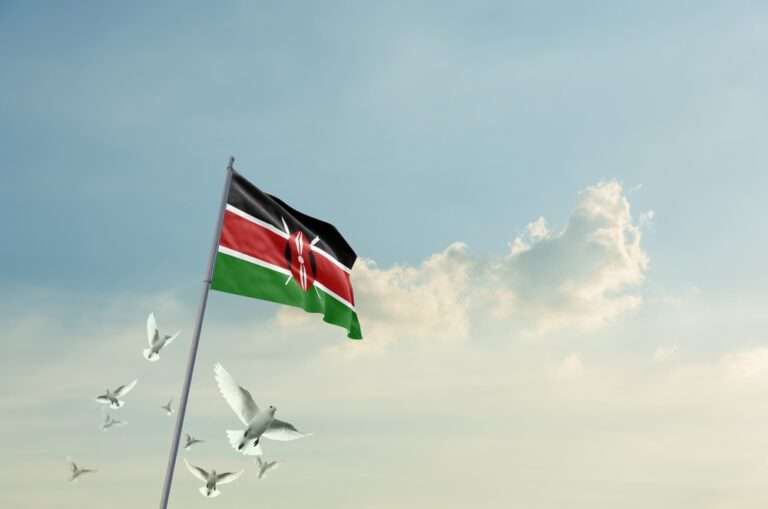
Egypt is a country rich in cultures and traditions. This nation shapes daily life using history, culture, and religion. Knowing these traditions can help visitors to have a more enriching trip. Respecting regional customs helps guests interact with the locals and see Egypt outside its well-known sites.
The Importance of Hospitality
Warm hospitality is well-known in Egypt. A well-rooted custom is welcoming visitors. If welcomed into an Egyptian house, one should be treated with hospitality. Ignoring food or drink might come off as rude. Even if just a few sips, it is traditional to welcome a cup of tea or coffee.
Expect amicable talks while visiting neighborhood markets or interacting with merchants. Egyptians like connections and conversation. Though bargaining is a part of society, it is done with respect and comedy. A smile and kind language may greatly improve the nature of contact.
Egypt Visa For PUERTORICAN CITIZENS
Greetings and Social Etiquette
Egypt greetings are kind and expressive. Men often give each other handshakes. Men among intimate friends and relatives may kiss on the cheeks. Women often welcome one another with a quick kiss on both cheeks or a gentle embrace. Still, relationships between men and women rely on cultural and religious ideas. A lady could decide against shaking hands with a guy. Waiting and seeing how the other person greets you is always ideal.
One often-used greeting is the Arabic “As-salamu Alaykum,” or peace be upon you. Responding with “Wa alaykum as-salam” is considered courteous, and peace is also upon you. When addressing seniors, it is preferred to use polite titles like “Mr.” or “Madam.”
Modesty in Dress
Egypt is a mostly Muslim nation, so clothing modesty is highly appreciated. Although visitors are not obliged to adhere to rigorous dress standards, wearing sensibly respects others. Women in places like Cairo generally wear long skirts or loose pants with shirts covering their shoulders. Men usually wear long slacks and shirts with sleeves.
Men and women should wear modest attire in places of worship, including mosques. Women may have to scarf their hair. Beachwear is allowed in coastal towns like Hurghada or Sharm El-Sheikh; however, covering up while leaving the beach is anticipated.
Dining Traditions
Egyptian food boasts many tastes and customs. There are several conventions to be aware of when eating with residents. Eating with the right hand is considered courteous, as the left hand is typically perceived as dirty. Sharing food from huge platters is typical while eating in a group. Since food is a show of hospitality, guests are sometimes urged to eat more.
Muslims fast from dawn to sunset for the holy month of Ramadan. Aware of this, travelers should refrain from eating or drinking in public during fasting. After sunset, families and friends get together for Iftar, the fast-breaking dinner. This is a happy and united moment.
Religious Respect and Practices
Islam is the most common religion in Egypt, and its influence permeates everyday life. Five times a day, mosques call to prayer, echoing back. Many companies shut temporarily during prayer hours, particularly on Friday, the primary day of devotion.
Though they should attend mosques with respect, non-Muslims are usually allowed to do so. One expects to remove shoes before entering and keep quiet within. Women may have to scarf their heads. Inside mosques, photography might call for authorization.
Egypt also has strong Christian traditions; many monasteries and gorgeous cathedrals Celebrate Christmas on January 7th, a major national holiday that Coptic Christians honor. Knowing these religious customs helps visitors appreciate Egypt’s varied spiritual legacy.
Traditional Festivals and Celebrations
Egyptians love celebrations, and festivals are quite significant in their culture. Sham El-Nessim is a spring holiday originally celebrated in ancient Egypt. Families gather for picnics and savor classic cuisine like onions and salted salmon.
The two most prominent Islamic festivals are Eid al-Fitr and Eid al-Adha. While Eid al-Adha honors Prophet Ibrahim’s desire to sacrifice his son, Eid al-Fitr celebrates the conclusion of Ramadan. Feasts, family get-togethers, and helping the less fortunate abound throughout both festivities.
Traditional marriages are a big occasion in Upper Egypt. They include processions, dancing, and energetic music. A hallmark of Egyptian weddings is the Zuffa, a wedding march with flutes and drums. One might see these happy occasions in cities or villages.
The Art of Storytelling and Music
Egypt has a strong legacy of narrative. In the past, professional storytellers, often called hakawatis, amused audiences with mythologies and hero stories. Cairo’s classic cafés or cultural events still include this custom, even if it is losing appeal.
Furthermore, it is vital in Egyptian life. Traditional folk music is defined by old rhythms combined with contemporary inspirations. Many get-togethers include the sounds of the oud, a string instrument. Celebrations call for the famous Egyptian dance called raqs sharqi, belly dancing.
Respecting Photography Etiquette
Egypt is a photographer’s dream come true; nevertheless, photographing requires care. One shows respect by requesting permission before shooting residents. Certain religious places and government structures could prohibit taking pictures there. People in remote places are sometimes reluctant to be photographed. One may make a great impact with a nice attitude and a basic request.
Egypt Visa For QATARI CITIZENS
Understanding Personal Space and Gender Roles
Egyptian culture is family-oriented; hence, social events usually include close relationships. Public affectionate gestures between couples are rare. However, While holding hands is polite, kissing or embracing in public might be seen as inappropriate.
Religious and cultural ideals help define gender roles. Although many women occupy leadership roles and work, certain places still follow conventional norms. Although foreign visitors are treated respectfully, observing local conventions around contact between men and women is necessary.
Embracing the Culture
Egypt’s cultures and traditions distinguish it. Understanding and appreciating these cultural features can help visitors create significant memories. Egyptians value guests who show interest in their legacy. Any vacation may become a remarkable adventure if one learns a few Arabic phrases, dresses modestly, and welcomes the friendliness of the locals. Egypt is as beautiful in its people’s hearts as in its monuments.
More Articles: Egypt’s Stunning Landscapes: From Deserts to Oasis Paradises






